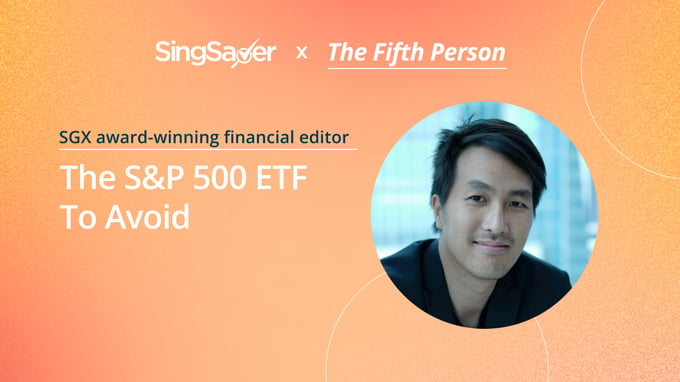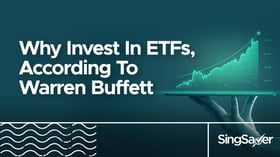If you want to save on fees and taxes, consider going with an Irish-domiciled S&P 500 ETF. Here’s why.
The S&P 500 is arguably the most followed stock index in the world. It comprises 500 of the ‘best’ companies listed in the U.S. like Apple, Microsoft, Alphabet, Amazon, Meta, and Tesla. The index is designed to represent a broad swath of the U.S. economy across multiple industries including technology, financials, communications, healthcare, consumer, industrials, real estate, energy, utilities, and materials.
Since its modern inception in 1957 to end-2021, the S&P 500 has returned a historical average annual return of 10.5%. This means that every $10K invested would have grown into $1.08 million over the same period. For passive investors who don’t have the time or interest to pick their own stocks, the S&P 500 is the most popular way to gain long-term exposure to the U.S. stock market through exchange traded funds (ETFs).
The largest S&P 500 ETF is the SPDR S&P 500 ETF Trust (SPY). The SPY was the very first ETF listed in the U.S. and has over US$400 billion in assets under management. It charges a relatively low expense fee of 0.0945% per annum. (In comparison, most U.S. equity mutual funds charge between 0.5% to 1.0% in fees on average.) Due to its size, liquidity, and low fees, the SPY is the most popular ETF in the world. However, if you’re not a U.S. resident, you want to avoid the SPY.
Death and taxes
The reason why you want to avoid buying the SPY—if you’re a non-U.S. resident—is because the SPY is domiciled in the U.S. This means that the SPY falls under U.S. tax rules and regulations. And as a foreigner, you face hefty U.S. foreign taxes on your stock investments.
The first is a 30% withholding tax on dividends. This means that if you earn US$100 in dividends for example, you will only receive US$70 after taxes. This may not seem like much at small amounts, but if you build a large portfolio of U.S. stocks or ETFs, this can get very expensive!
The second is an estate tax of up to 40% for U.S. assets above US$60K upon death. This is a tiered tax where you pay progressively higher taxes the more you own in U.S. assets.
For example, if you only have US$60K in U.S. assets when you pass on, you don’t have to pay anything in estate tax. If you have US$100K in U.S. assets, you pay a total of US$8,200 in estate tax. If you have US$1.06 million in U.S. assets, you pay a total of US$345,800 in estate tax!
This is critical, especially if you plan on dollar-cost averaging in the S&P 500 over the long term. Your portfolio could grow into high six or seven figures over a period of 30 to 40 years, and your estate tax liability will rise to excessive levels as well.
So, is there a way to avoid or reduce your taxes, and ride the growth of the S&P 500 at the same time? Yes, there is.
Irish-domiciled S&P 500 ETFs
Instead of investing in a U.S.-domiciled ETF (like the SPY), you can invest in an Irish-domiciled ETF. Ireland has a tax treaty with the U.S. which reduces its dividend withholding tax to 15%. In addition, Ireland has no dividend withholding tax for Singapore residents. What this basically means is that the U.S. charges a 15% dividend withholding tax on an Irish ETF, and the Irish ETF then passes the net dividend to you with no more additional taxes.
Finally, Ireland has no estate tax for foreigners. If anything happens to you (touch wood), your family won’t be shocked with a massive tax bill from Ireland.
Here’s a list of Irish-domiciled S&P 500 ETFs compared to the SPY:
| Name | Ticker | Domicile | Dividend Treatment | Expense Ratio |
| SPDR S&P 500 ETF Trust | SPY | United States | Distributing | 0.0945% |
| SPDR S&P 500 UCITS ETF | SPY5 | Ireland | Distributing | 0.09% |
| Vanguard S&P 500 UCITS ETF | VUSD | Ireland | Distributing | 0.07% |
| Vanguard S&P 500 UCITS ETF | VUAA | Ireland | Accumulating | 0.07% |
| iShares Core S&P 500 UCITS ETF | IUSA | Ireland | Distributing | 0.07% |
| iShares Core S&P 500 UCITS ETF | CSPX | Ireland | Accumulating | 0.07% |
The first thing you notice is that the Irish-domiciled ETFs here actually have a lower expense ratio than the SPY—which makes the SPY a poor choice since it's more expensive and you face U.S. taxes. (There are other U.S. S&P 500 ETFs—like VOO and IVV—with even lower expense ratios at 0.03%, but you face the same issue of U.S. estate and withholding tax.)
The other thing you notice is that the Irish-domiciled ETFs have accumulating ETFs that reinvest your dividends in the fund automatically. If you have no need to spend your dividends and prefer to grow your investments faster, then accumulating ETFs is a great choice. (And if you are wondering whether accumulating ETFs avoid the U.S. dividend withholding tax, they don’t. Dividends are taxed before reinvested into the fund.)
Do note that the Irish-domiciled ETFs are typically listed on the London Stock Exchange, so pick a brokerage that gives you low-cost access to that exchange.
Final thoughts
Investing in an S&P 500 ETF is one of the best ways to gain exposure to the U.S. stock market. While the SPY is the largest S&P 500 ETF in the world, it also has the highest fees and the issue of U.S estate and withholding tax. Unless you have an options strategy that requires the size and liquidity of the SPY, go with an Irish-domiciled S&P 500 ETF to save yourself on fees and taxes.
Start managing and saving money like a pro with SingSaver’s weekly financial roundups! We dole out easy-to-follow money-saving tips, the latest financial trends and the hottest promotions every week, right into your inbox. This is one mailer you don’t want to miss.
Sign up today to receive our exclusive free investing guide for beginners!
Read these next:
What ETFs Are And Why Warren Buffett Advocates Them
Best US Exchange Traded Funds (ETFs) To Invest In (2021)
Best ETFs In Singapore For Tracking Stocks, Bonds And REITs
What Are Mutual Funds, And How to Pick The Best Mutual Funds In Singapore 2022
Investing In Exchange Traded Funds (ETFs): A Newbie’s Guide To Getting Started
Similar articles
How To Build A Multi-Asset Portfolio Even In Your 20s
AutoWealth Review: ETF Investments With Straightforward Fees
SPDR STI ETF vs Nikko AM STI ETF: A Comparison In A Jiffy
Best US Exchange Traded Funds (ETFs) To Invest In (2021)
How To Build The Best Passive Income Portfolio For Your Future Self
Investment Outlook – What Lies Ahead In the Second Half of 2023?
What ETFs Are And Why Warren Buffett Advocates Them
Building A S$100,000 Net Worth By 30: Is It Possible?











